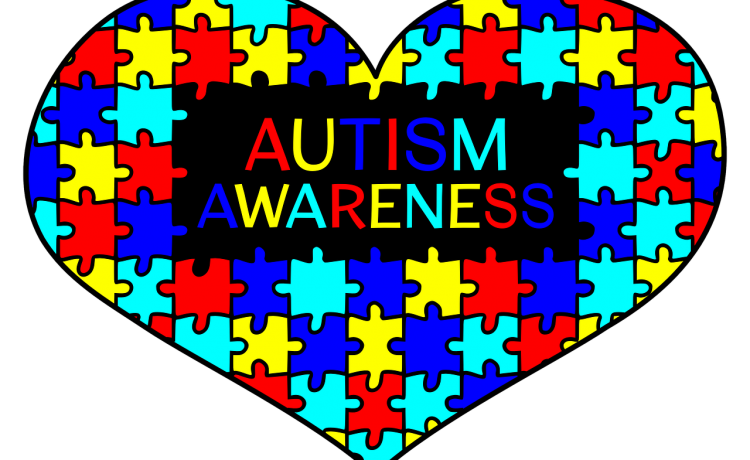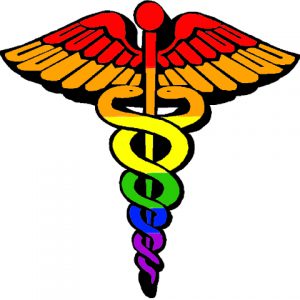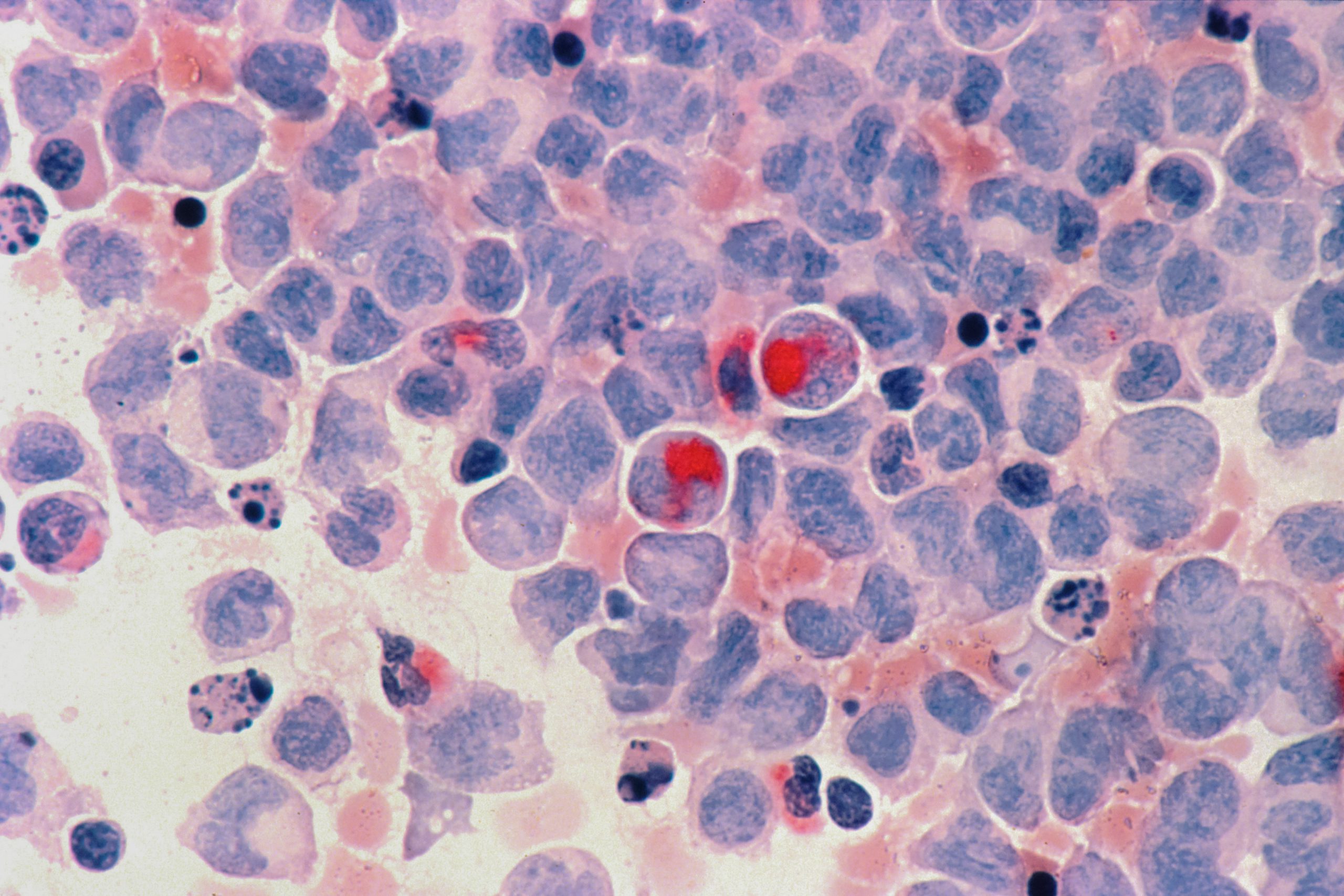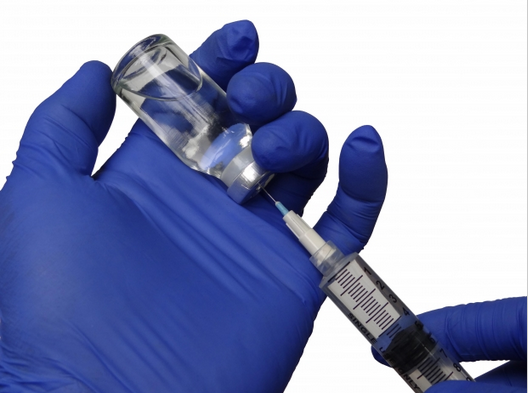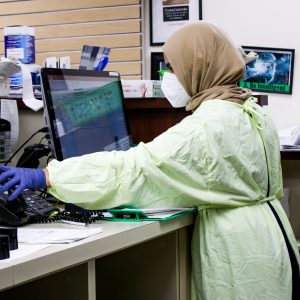April is Autism Awareness Month. Autism spectrum disorder (ASD) is a common but complex developmental disability, with 1 in 36 American children born in the United States on the autism spectrum. Although doctors generally agree that the cause for autism spectrum disorder is unknown, there are known risk factors. Research indicates that genetics are involved in the vast majority of cases and children born to older parents are at a higher risk for having autism. Parents who have a child on the spectrum have a 2-18% chance of having a second child who is also affected.
The signs of autism are usually apparent when a child is between 2-3 years old, but may be seen in younger children. Symptoms are different for everyone, though some of the behaviors associated with autism include delayed learning of language; difficulty making eye contact or holding a conversation; difficulty with executive functioning (relating to reasoning and planning); narrow, intense interests; poor motor skills; and sensory sensitivities. A diagnosis of ASD is based on an analysis of all behaviors and their severity.
Autism can affect the whole body, and is often associated with other conditions and health risks. Attention Deficit Hyperactivity Disorder (ADHD) affects an estimated 30-61% of children with autism; more than half of children on the spectrum experience chronic sleep problems; 11-40% of affected children/teens have anxiety disorders; and 7% of children and 26% of adults with autism are also diagnosed with depression. Children with autism are nearly eight times more likely to suffer from one or more chronic gastrointestinal disorders than other children, and as many as one-third of people with autism have epilepsy. An estimated 40% of people with ASD are nonverbal, 31% have an intellectual disability with significant challenges in daily life, 25% are in the borderline range, and 44% have average to above average IQ scores.
The average cost of raising a child to 17 years of age in 2020 was $284,570. By contrast, the estimated cost to raise a child with autism or other intellectual disability is between $1.4 to $2.4 million. On average, autism costs an estimated $60,000 a year through childhood with the majority of the costs associated with special services and lost wages related to increased demands on one or both parents. Costs increase with the occurrence of intellectual disability. Medical expenditures for children and adolescents with ASD are four to six times greater than for those without autism. Mothers of children on the autism spectrum — who tend to serve as the child’s case manager and advocate — are less likely to work outside the home; they work fewer hours per week and earn 56% less than mothers of children with no health limitations and 35% less than mothers of children with other disabilities or disorders.
The cost of caring for Americans with autism is expected to reach up to a trillion dollars by 2025 in the absence of more effective interventions and support throughout their life, with the majority of autism’s costs in the U.S. going towards adult services. Over the next decade, an estimated 707,000 to 1,116,000 teens will enter adulthood and age out of youth-based autism services. Many young adults on the autism spectrum do not receive any healthcare for years after they stop seeing a pediatrician. More than half of young adults with autism remain unemployed and unenrolled in higher education two years after high school. This is a lower rate than that of young adults in other disability categories including learning disabilities, intellectual disability, or speech-language impairment. Of the nearly 18,000 people with autism who used state-funded vocational rehabilitation programs in 2014, only 60% left the program with a job. Of those, 80% worked part-time at a median weekly rate of $160 — well below the poverty level. Nearly half of 25-year-olds with ASD have never held a paying job. Adults on the autism spectrum are more likely to experience discrimination, exploitation, and abuse in the workplace.
The COVID-19 pandemic has been especially difficult for people with autism spectrum disorder, as routines and learning environments have been forced to adapt with changing guidelines. Therapeutic services such as speech, language, and occupational therapy; special education; transportation services; and other resources became unavailable or hard to access during the pandemic — increasing the experience, severity, and frequency of behavioral issues when patients lost access to support and structure in their daily lives. While school-based services have resumed, many have diminished due to a lack of staffing and some therapy providers only offer services virtually which tends to be less effective for people on the spectrum. Children with autism have missed out on specialized instruction as well as opportunities to develop social skills, and their families have had reduced access to respite care.
Part of raising awareness is the pursuit of dispelling harmful misinformation. Autism has a history of being misassociated with the measles/mumps/rubella (MMR) vaccine, sparked by a 1998 paper by a doctor who has since been discredited and stripped of his clinical license. There have been dozens of studies that refute the association between vaccines and autism, but they have done little to quiet those who repeat lies and misinformation.
Autism awareness remains an important goal as early intervention has shown positive results for those on the spectrum, but also to relieve the stigma of those with special needs and the families that support them. To further reduce stigma and enrich the lives of people on the autism spectrum, Autism Eats is an organization that organizes events at restaurants for families with children with autism. The events are able to provide a judgment-free environment for families that may often feel stressed or anxious at the thought of dining out. A stigma-free future is what awareness hopes to lead towards.
NeedyMeds has information on several resources available to children with autism and their families. Our Autism Diagnosis Information Page is designed to be the one-stop location to easily reach all the relevant information: we list commonly prescribed medications that link to any Patient Assistance Programs (PAPs) we have information on that may provide prescriptions at low or no cost. The Diagnosis Information Page links to our database of Diagnosis-Based Assistance (DBAs) programs that provide a variety of services from helping with living expenses, respite care, service animals, or durable medical equipment. We also link to our databases of recreational camps and academic scholarships that enable children and young adults on the autism spectrum to have fun experiences and continue their education. For more help finding information, call our toll-free helpline Monday-Friday 9am-5pm Eastern Time at 1-800-503-6897.

